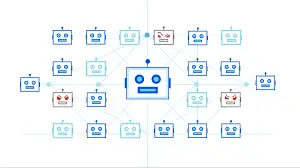Published on May 24, 2025
What Is Brainware

In the increasingly advanced digital era, terms such as hardware and software are very familiar to us. However, there is one important component that is often less recognized even though it is the main determinant in the success of information technology management, namely brainware. What exactly is brainware, what is its role in the world of technology, and why is its existence so important? This article will discuss the concept of brainware, its role in the use of technology, and the resulting impact.
Definition of Brainware
Simply put, brainware is the human element that uses and utilizes hardware and software. If hardware is the physical device of a computer or gadget, and software is the software or program used in the device, then brainware refers to individuals or human resources who run, operate, and manage the technology. Without brainware, both hardware and software will not be able to run effectively because no one uses it.
In the context of information technology (IT), brainware covers various roles ranging from ordinary users, technicians, to developers and project leaders. In other words, brainware is not only people who work directly in the IT field, but also includes all individuals who interact with information systems and technology. Without the involvement of brainware, even sophisticated technology will be a useless tool because it is not used optimally.
Main Components in the Technology Ecosystem: Hardware, Software, and Brainware
It is important to understand that hardware, software, and brainware are interrelated units. These three components form an ecosystem that is needed to run a technology system properly. Here is a brief explanation of the relationship between the three:
- Hardware: Physical devices used to process data, such as computers, servers, and network devices. Hardware is the infrastructure that supports system operations.
- Software: Programs or applications that run on hardware, such as operating systems, business applications, and data processing tools.
- Brainware: Humans who operate and manage hardware and software. They ensure that the system runs according to business needs or user goals.
Without brainware, hardware and software are just inanimate objects that cannot do anything. In other words, humans are the elements that make technology useful and efficient.
- Dirb in Kali Linux: The Complete Guide
- What Is Androbuntu Proxy? Complete Guide and Its Benefits
- How to Fix Error "Error writing lock file ./.charge_control_end_threshold.swp: Permission denied"
- Understanding NoSQL Databases: Definition, Types, and Advantages
- Definition, Function, and Types of Databases
Types of Brainware Based on Their Roles
Not all brainware has the same tasks and responsibilities. Based on its role, brainware can be divided into several categories, namely:
- End Users: These are people who use technological devices to complete daily tasks. Examples include employees who use computers in the office, students who access learning materials, and individuals who use social media applications or platforms.
- System Administrators: They are responsible for managing and ensuring the system runs stably. System administrators have in-depth technical skills to ensure hardware and software can work properly and manage system security and maintenance.
- Software Developers: They are programmers who create software or applications. Software developers understand programming languages and software development processes, and ensure that the software they create can work with certain hardware and according to user needs.
- Network Technicians: Network technicians are responsible for setting up and maintaining computer networks so that devices can connect to each other and exchange data. They ensure that the network system runs stably, safely, and efficiently.
- System Analyst: System analysts are tasked with evaluating existing systems, analyzing needs, and providing recommendations for developing or improving information systems in an organization. They are the bridge between business needs and technological capabilities.
- IT Project Manager: They are project leaders who are responsible for ensuring technology projects run according to plan. IT project managers are tasked with managing budgets, human resources, and timelines, as well as coordinating with all parties involved in the project.
The Important Role of Brainware in Information Technology
Without brainware, hardware and software will have no value or benefit to an organization or individual. Here are some important roles played by brainware in utilizing information technology:
- Optimizing the Use of Technology: Brainware is a key element that optimizes the use of technological devices. They have the knowledge and skills to utilize the features in hardware and software to provide optimal results.
- System Maintenance and Updates: Technology is always updated over time. Brainware is responsible for system maintenance, including updating software, repairing damage to hardware, and ensuring the system remains secure.
- Increase Efficiency and Productivity: Brainware plays a major role in helping organizations achieve higher efficiency and productivity. With proper management, technology can help complete work faster and more accurately.
- Development and Innovation: Technology continues to develop and present new innovations. Brainware such as software developers, system analysts, and network technicians help create innovative solutions that improve system performance or produce new products and services.
- System Security Management: Brainware plays an important role in maintaining the security of information systems. In the cyber era that is full of risks, brainware must be able to protect data and systems from threats such as viruses, hacker attacks, and data leaks.
Challenges Faced by Brainware
Despite its crucial role, brainware also faces various challenges. Here are some of them:
- Rapid Technological Development: Information technology is developing very rapidly, so brainware must continue to develop its abilities and knowledge in order to keep up with this development. They must adapt to the latest technology and learn new relevant skills.
- Cybersecurity Threats: Cybersecurity threats are increasingly complex and continue to develop. Brainware, especially those responsible for security, must always be vigilant and ready to face various types of cyber attacks that can endanger systems and data.
- Demand for Special Skills: The technical skills required in information technology are increasingly complex. The demand for in-depth knowledge and special skills makes brainware need to spend time on training and self-development.
- System Integration: With the emergence of many new technologies, brainware is often faced with the challenge of complex system integration. They must ensure that various existing systems can work together synergistically without causing conflict or interference.
Conclusion
Brainware is a key element in the world of information technology that includes various individuals with different roles, from end users to technicians and software developers. Brainware is not only a user of technology, but also a manager, innovator, and system security guard who ensures that technology can be used optimally and efficiently.
Although technological developments present many challenges, brainware has a vital role to ensure that every element of technology, both hardware and software, can provide benefits to organizations and individuals. Their role is very important in this digital era, where information technology is the backbone of every aspect of modern life.
That’s all the articles from Admin, hopefully useful… Thank you for stopping by…


